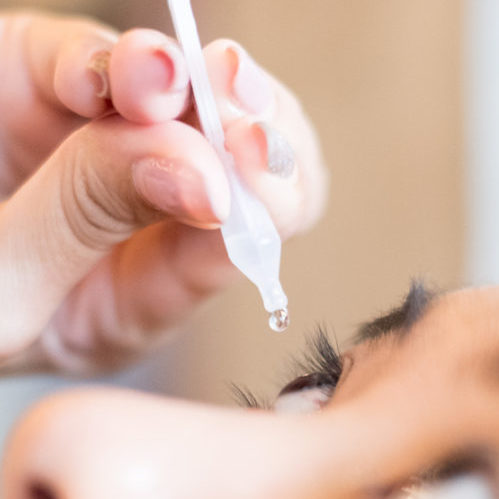The First 24 Hours
The first day after your surgery is when you’ll likely experience most side effects and symptoms. These can include:
- Dry eyes
- Itchiness and irritation
- Blurry vision
- Light sensitivity and halos
These symptoms can vary from person to person. Your ophthalmologist will give you special eye drops to use in order to manage symptoms. It’s important to avoid touching, rubbing, or otherwise disturbing your eyes, so make sure to use the eye drops as much as needed.
Make sure to focus on resting for the first 24 hours and avoid any extensive activities. It’s important that the flap created during surgery is not moved or disrupted. Activities like reading, watching TV, or playing video games can be hard on your eyes during this time so instead try to nap and relax.
The First Week
Within a few days of surgery, you should be ready to return to office-based work and regular, everyday activities. If you work a more labor-intensive job, your ophthalmologist will recommend the best time to return to work.
For the first week after surgery, make sure to avoid touching or rubbing your eyes. Additionally, avoid environments that could irritate your eyes or accumulate debris in them (like dust or smoke). Avoid using products like soap, makeup, or lotion around your eyes for the time being, too. You can still use your eye drops as needed, but your symptoms may go away by this time.
You should still avoid extensive activities during this time like contact sports. Make sure to wear safety googles when needed and avoid driving at night (you’ll have difficulty seeing at night until your eyes fully heal).
The First Month
It can take a month or more before your eyes completely adjust after LASIK. It’s normal to still experience some vision fluctuations, dry eyes, and seeing halos at night. If these don’t subside, then it’s important to check in with your ophthalmologist.
Following Up
After your surgery, you’ll follow up with our team to make sure your eyes are recovering as they need to. Make sure to ask questions and report any symptoms. We’ll also check your vision to make your vision is developing as it should. Make sure to return for your yearly check-ups so you enjoy clear vision for the long term after LASIK.
LASIK in Boston, MA
LASIK is a great investment in your vision and your lifestyle. During a consultation with our experienced team, we can discuss your options and help you achieve your best vision without glasses or contacts. Get started by taking our LASIK self-test or schedule an appointment at our Boston-area offices.
